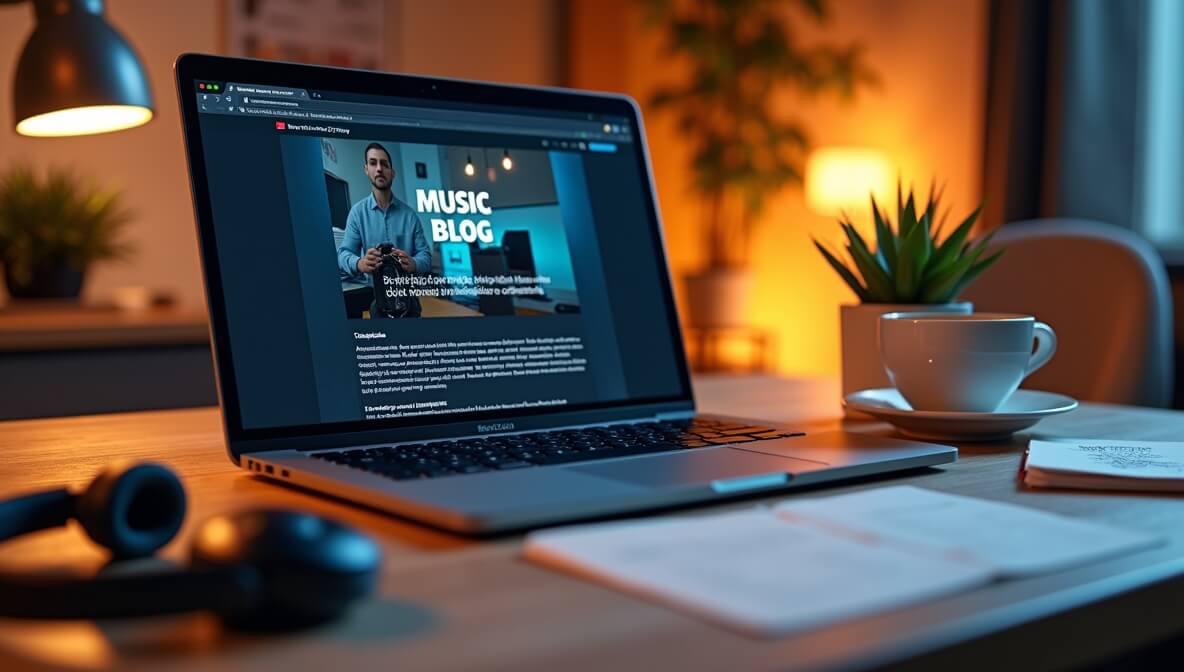August 12, 2025

In today’s crowded digital space, launching a music blog is easy — but building one that stands out and draws a loyal following? That takes strategy, passion, and consistency. Whether you're passionate about gear reviews, underground genres, or helping beginners master their first instrument, your blog has the potential to become a trusted hub — if you build it with intention.
Here’s a step-by-step guide to creating a music blog that doesn’t just exist — it thrives.
The music world is vast. Writing about "music" in general is too broad to gain traction. Instead, define your unique niche — that sweet spot between your passion and what an audience is actively searching for.
You could focus on:
For example, if your passion lies in helping musicians improve their skills, you could feature guides like these ear training exercises to help readers recognize melody and harmony more intuitively.
Pro Tip: Check Reddit threads, YouTube comments, or forums to find real questions people are asking in your niche — then answer them on your blog.
Great blogs are consistent. Before you publish a single post, map out your content calendar:
If you're writing for musicians looking to produce at home, include content on topics like digital audio workstations or audio interfaces — two essentials for any beginner setting up their first home studio.
Set realistic goals — even one strong post per week can outperform a blog that publishes daily but inconsistently.
Search engine optimization (SEO) is how you get traffic, but writing for humans is how you keep it. Use SEO tools to find keywords, but never sacrifice clarity or tone to "stuff" them in.
Key tips:
Tools like Google’s Keyword Planner or Ubersuggest can help you choose topics based on real search behavior.
Music is a sensory experience, and your blog should reflect that. Visuals and audio matter:
For example, if you're writing about scales or improvisation, enrich it with diagrams like those found in unlocking the piano fretboard.
Multimedia doesn’t just keep readers interested — it also increases time on page, which helps your SEO.
If content is king, distribution is queen. Don’t rely solely on Google to drive traffic. Actively promote your posts on platforms like:
You can even repurpose blog content into reels, threads, or carousels. And remember — the same techniques used by indie artists to grow their followings apply to bloggers too. Learn how creators are building fanbases strategically and apply similar tactics.
One of the fastest ways to grow is to tap into existing audiences. Reach out to:
Highlighting a niche topic — like obscure music genres — can also help your blog become the go-to authority on a unique subject no one else is covering.
Collaboration builds credibility and introduces your blog to new readers who already trust your partner’s voice.
Blogging isn’t static — it’s a journey. To keep your blog relevant:
Your readers grow and change — so should your blog.
Stay up to date with the latest tips, expert insights, product reviews, and step-by-step guides to help you grow, create, and succeed—no matter your industry or passion.